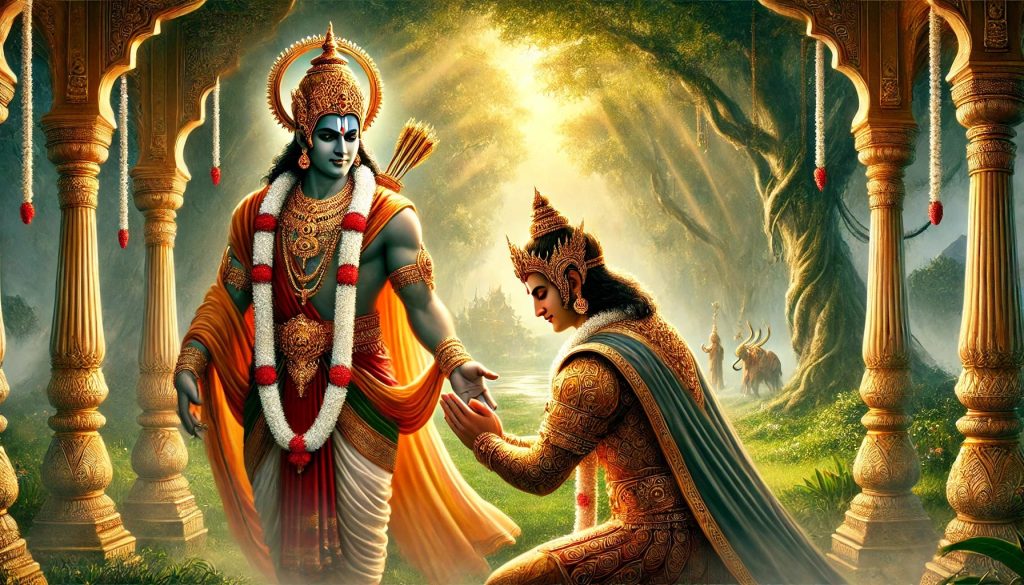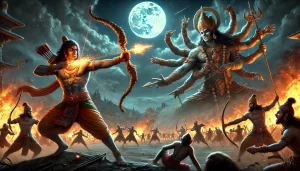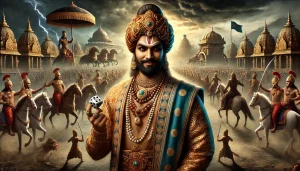
Vibhishana is the brother of Ravana, the demon king of Lanka.Vibhishana is a significant figure in the Ramayana, another major ancient Indian epic not a character in Mahabharata,and he plays a crucial role in the story by defecting from his brother’s side to join Rama. Vibhishana’s defection is motivated by his adherence to dharma (righteousness) and his disapproval of Ravana’s abduction of Sita, Rama’s wife. He ultimately becomes an ally of Rama and assists him in his quest to defeat Ravana and rescue Sita. After Ravana’s death, Vibhishana is crowned the king of Lanka by Rama.
Vibhishana served as an adviser to his brother Ravana and often counseled him against his unethical actions. He particularly opposed Ravana’s decision to abduct Sita and urged him to return her to Rama to avoid destruction.
When Ravana refused to heard his advice, Vibhishana chose to leave Lanka and join Rama. This act of defection was significant as it showcased his commitment to righteousness over familial loyalty. Rama accepted Vibhishana and assured him of his protection.
Vibhishana’s intimate knowledge of Lanka and its defenses proved invaluable to Rama’s army. He provided critical intelligence and strategic advice that helped Rama and his allies in their battle against Ravana.
After Ravana’s defeat and death, Rama installed Vibhishana as the king of Lanka. This act ensured that the kingdom would be ruled justly and ethically, aligning with the values of dharma.
Vibhishana’s character is often cited as a symbol of righteousness and moral integrity. Despite being a Rakshasa, his unwavering commitment to dharma and his courageous stand against his brother’s tyranny are celebrated in the epic.
While Vibhishana is primarily known from the Ramayana, there are references to him in later literature and various regional versions of the story, which sometimes depict variations in his character and actions. Nonetheless, his role as a virtuous figure who aids Rama remains a consistent theme.
In addition to his literary role, Vibhishana is also worshipped in certain traditions and is considered a deity in some parts of India and Sri Lanka. Temples dedicated to him exist, particularly in South India and Sri Lanka, where he is revered for his devotion to righteousness and his role in the Ramayana.
In summary, Vibhishana’s significance in the Ramayana lies in his exemplary adherence to moral principles, his strategic importance in the battle against Ravana, and his role in establishing a just rule in Lanka post-Ravana’s demise.




